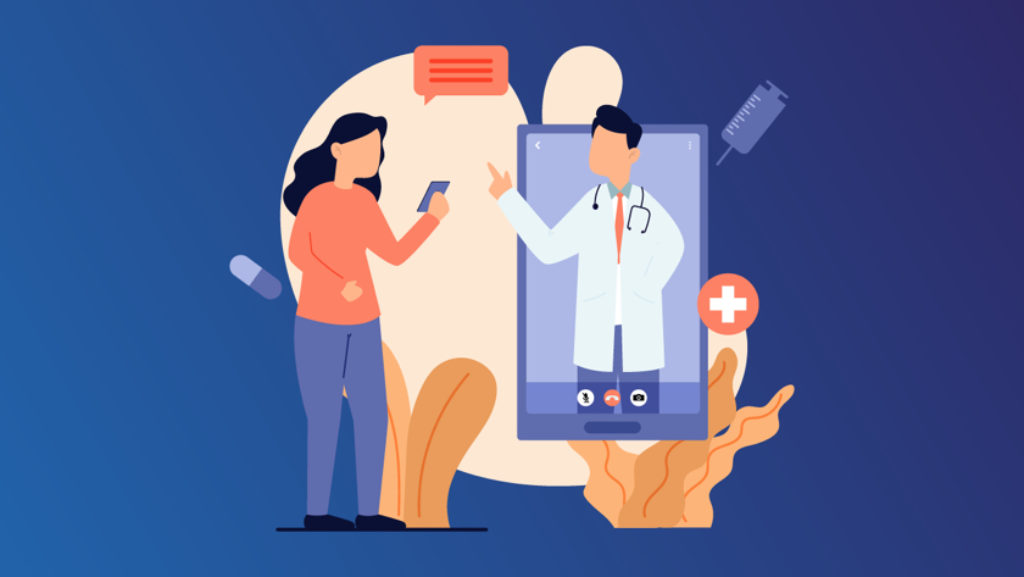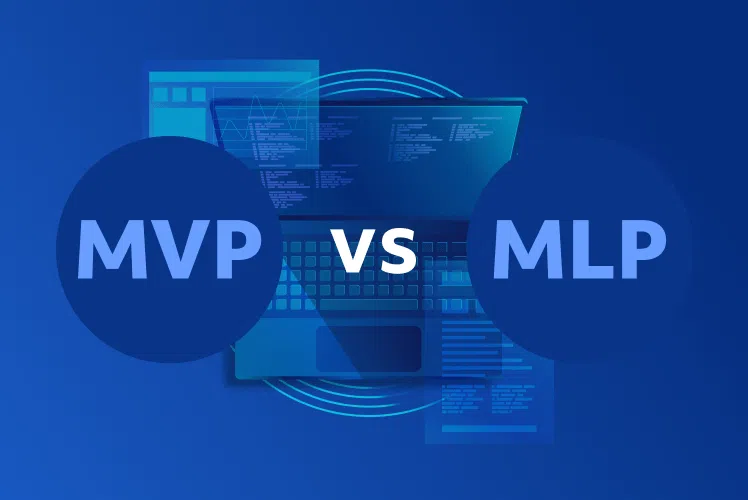Table of Contents
We’ve already talked quite a lot about the digital transformation of the healthcare industry: the use of Augmented Reality for students’ training, computer vision for diagnostics, machine learning for drug research and manufacturing. Now it’s time to talk about mobile applications that make the lives of medical specialists much easier. Below, we will review the most common features of mobile apps for medics and how exactly they benefit them.

The most common use cases for specialized medical apps
We all know about medical apps for patients that allow them to monitor their state of health, improve eating, fitness, or sleeping habits, and even provide psychological help. But what about mobile apps that are designed specifically for medical professionals?
In the light of healthcare digitization, specialized medical apps have become a new standard that allows healthcare professionals to perform their work faster. And in healthcare, every second counts so that’s a really valid argument. Below, we list down the main use cases of specialized mobile apps for doctors.
Management of information and time
It goes without saying that healthcare professionals deal with massive amounts of information on a daily basis. Hence, they can use their mobile devices for time management and note-keeping purposes. While there are native applications (like Notes on iOS) that allow writing notes and making reminders, specifically designed medical apps are more comprehensive.
With such a specialized app, a medical specialist can do the following:
- Make and share notes;
- Manage the schedule with an integrated calendar;
- Store, access, upload, and share files;
- Create notifications.
As you can see, such apps serve as organizers that help keep track of time and tasks. As well, some apps can be used together with others and that boosts up their value for users.
Easy access to patients’ information
Another useful way how mobile apps help HCPs (health care professionals) is by providing them access to the patients’ records and information, stored in a hospital’s database. Medics often need access to such information as electronic health records, scans, prescriptions, lab results, and similar. By being able to access this information remotely, they can do their work quickly without the need to search for the info or be present on site.
Needless to say, a good mobile app has to support different file formats that will be used. This includes PDF, JPEG, PNG, Word, and other most commonly used document formats. Hence, if you decide to integrate your app with the existing system, check the format in which files are stored and make sure the app supports it.
Collaboration with colleagues
An average healthcare establishment has many departments and all of them constantly communicate with each other. The lab provides results for general practitioners, who, in turn, consult with surgeons and this communication goes on and on. Before computers were introduced, HCPs spent too much time running around and obtaining information from colleagues but even with computers and digitization, communication between the departments leaves room for improvement.
That’s where mobile apps step in and provide an easy way for doctors to communicate with each other. With the help of these apps, HCPs can do the following:
- Communicate via text, video, or voice chats;
- Share files and documents;
- Organize in-app online conferences;
- Social networking.
Enterprise social networking apps are one of the most popular types of mobile apps to be used within an organization. Such apps promote collaboration, help doctors consult their colleagues for more accurate diagnoses, and overall contribute to the efficiency of their work.
Patient monitoring and consulting
The use of IoT and machine learning in healthcare allows doctors to monitor patients remotely and delegate patient monitoring to a smart monitoring system. This system is able to detect the most minor alerting factors and immediately notify doctors about them. And the best way to receive a notification is via a mobile device and a wearable device.
With the help of a specialized mobile app, doctors can receive real-time notifications and monitor the state of the patients and the progression of their condition. It is especially important for patients with acute conditions or diseases that require constant monitoring and immediate reaction from medics.
In addition to remote monitoring, specialized mobile apps allow medics to conduct remote consulting if needed. One of the most common examples would be apps for remote psychological therapy and/or help. However, there are also mobile apps out there that serve as virtual nurses as they enable patients to contact their doctor and receive online consultancy.
Information gathering
Another important use case for a medical mobile application is information access and gathering. The nature of the work of medical professionals implies constant research of specialized literature in order to make more accurate diagnoses. Doctors constantly need to check on such things as drug information (dosages, interactions, contraindications, etc.), symptoms, diseases, and similar cases. And all that can be done with the help of a mobile app.
In terms of information gathering, medical apps for doctors provide the following:
- Access to medical journals and coursebooks;
- Access to latest medical news;
- Drug references;
- Access to medical literature.
All this information needs to be organized in a clear manner and the navigation has to be clear and straightforward. As well, it’s important that users can share the information and be able to access documents in different formats.
Clinical decision-making
Since a mobile application contains a great amount of useful information, provides access to medical literature, and promotes collaboration between the doctors, the use of a medical app significantly facilitates the process of clinical decision-making and diagnostics.
Most specialized medical apps have flowcharts and clinical algorithms to help HCPs correctly identify the disease and exclude the possibility of a mistake. By using such an app, a medical professional can double-check the accuracy of the diagnosis, consult colleagues, and even conduct simple examinations and tests.
The benefits of medical apps for doctors
We’ve talked about the most common use cases of mobile applications for healthcare professionals – now let’s see the actual tangible benefits of incorporating such apps into your processes.
Less time and fewer errors
On average, a medical professional saves about 18 minutes per day by using a mobile device for work purposes. Hence, one of the biggest benefits of using a specialized mobile app is a significant saving of time as all the needed information is centralized and is at immediate disposal. This, in turn, leads to increased accuracy of work as HCPs can quickly access the needed information or consult their colleagues. Research by Carestream states that there is a 30% reduction in errors made during work if a medic refers to a mobile device for information, which is quite an impressive number.
Better patients’ experience
By being able to immediately react to alerting notifications, remotely monitor the patients, and make diagnoses faster and in a more accurate manner, medics will provide a much better patients experience. This, in turn, will have a positive impact on the medic-patient relationship as well as boost the loyalty of patients towards a medical establishment.
Better care for remote locations
Sometimes doctors are not able to timely react to emergency situations that happen in rural areas or it takes too long for a doctor to arrive at a certain location. Thanks to mobile apps, medics can offer online consultations and help to those patients who are not able to visit a physical medical establishment.
Watch the security of your app
When talking about medical apps for doctors, security should be the primary point of concern since such apps process and store great amounts of sensitive data. We’ve already written an article on mobile security, so here are the main takeaways:
- A high-level authentication: provide several authentication methods (biometric, PIN) and limit the number of login attempts.
- Encrypt the data: select the right cryptographic algorithms and check OWASP guidelines.
- Check the third-party code: any third-party code demands additional verification since it can be among the most vulnerable areas of your application.
- Use SSL protocols: a Security Socket Layer (SSL) certificate is recommended for use by OWASP and protects the data with the “SSL Handshake” method.
Another important thing to consider is HIPAA compliance which is an obligatory requirement for any product/service that is related to healthcare. Let’s take a closer look at it.
HIPAA compliance: what is it and why is it so important?
You’ve probably come across the HIPAA compliance term but since the subject is really important, we will go through the most frequently asked questions. These questions will help you better understand what is HIPAA, whether you need to be compliant, and how to achieve this compliance.
What is HIPAA?
HIPAA stands for the Health Insurance Profitability and Accountability Act and it covers the management, storage, and transmission of PHI (protected health information).
What is PHI?
As said above, PHI stands for protected health information and is comprised of 18 classes of personal information, as defined by the US Department of Health and Human Services. Examples of these classes are patient names, emails, IP addresses, or phone numbers. In general, it’s all the data that can reveal one’s identity.
Does my app have to be HIPAA compliant?
Yes, if the collected data will be shared with medical professionals or any HIPAA Covered Entity (which are usually the cases for any medical app).
What does HIPAA-compliant mean?
It means that a mobile application meets all technical and physical safeguards of HIPAA Security Rule. Note though that when you host an app in a HIPAA environment, it doesn’t mean the app itself is HIPAA compliant too.
How do I make my app HIPAA compliant?
Here are the general steps to take in order to make your app HIPAA compliant:
- Provide administrative, physical, and technical safeguards to ensure confidentiality and security of the transmitted and stored PHI.
- Establish limited access to the PHI and its use and sharing.
The topic of HIPAA is related to the issue of an app’s security. By properly securing the app and making sure that it’s protected from possible internal and external threats, you will ensure the safety of data and will follow the HIPAA guidelines on data security.
Conclusion
A specialized medical app, without a doubt, is a highly valuable asset that allows healthcare professionals to do their work in a more efficient manner. If you decide to build such an app, take some time to find a reliable software development provider who will not only help you bring your idea into life but will also ensure the app’s safety alongside its seamless integration with needed third-party systems. As well, an experienced service provider will take full care of app’s further maintenance and support and will be able to implement any needed changes or upgrades upon request.


Comments